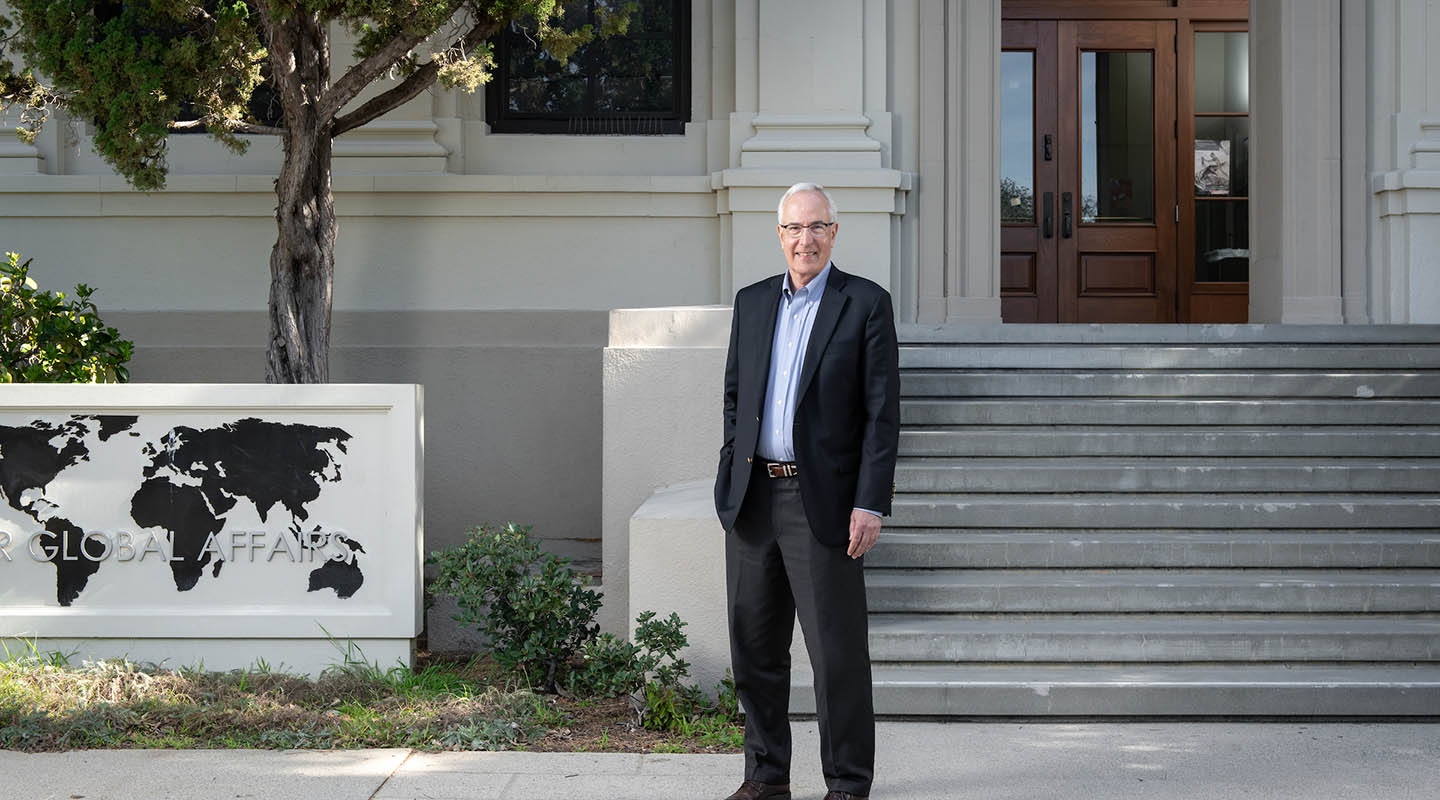It was a happy accident that Coit “Chip” Blacker, then a high school senior from Santa Monica, was invited to Oxy to attend a daylong program hosted by the College’s department of Diplomacy and World Affairs.
“My government teacher asked me if I wanted to be one of the two students, and I said yes,” Blacker recalls. “I spent the day on campus, and I had a great time.”
He in turn applied to Occidental, which would launch the politics major into an international studies career. Blacker has been a Stanford professor of international studies for most of the past 40 years. During the Clinton presidency, he was a special assistant for national security affairs, and the senior director for Russian, Ukrainian and Eurasian affairs at the National Security Council.
“The fun part about being a presidential assistant is you get to travel with him,” Blacker says. “You’re off his right shoulder all the time, whispering in his ear.”
It was at the College that Blacker experienced the faculty “troika” of Larry Caldwell, the Cecil H. And Louise Gamble Professor of Politics; history Professor John Rhodes: and Norman Cohen, Robert Glass Cleland Professor of American History, Emeritus. Their political sensibilities spanned the ideological gamut.
“All three of them were extraordinary teachers,” says Blacker. “They obviously helped set the fire in terms of how I wanted to lead my life and what was important to me. I loved learning from them. They cared deeply about what it was that they did, and they were eager to open up that world to students. I saw in them what all of us could become.”
Like his professors did for him, Blacker, similarly, found some of his greatest professional satisfaction in being a teacher and mentor to his own students. His sensibilities were in large part influenced by the times in which he lived: Blacker started at Oxy a month after the infamous 1968 Democratic National Convention; he graduated a week before the Watergate break-in.
“I was faced with a choice: whether to play an outside game or play an inside game,” he says. “By an outside game, I mean turn on back on everything that was happening in American politics and culture at the time and pursue whatever it is I wanted to pursue individually.
“Or I could reinvest in the country’s institutions because they were under enormous stress. I clearly remember making the decision to renew the ability of those institutions, and that’s where the public service piece comes in. I’ve never regretted it. I feel strongly that I was provided the opportunity to serve the Republic.”
These days Blacker is a study group member of the National Commission on Terrorism. He continues to rely on the critical thinking skills he developed at Oxy.
“Thinking critically means here’s the conventional narrative on a story, and I’m going to try to peel away the layers to see how true the narrative is,” he says. “When I think about Oxy’s gifts, I think of two things: one is how to think and one is how to write.”

